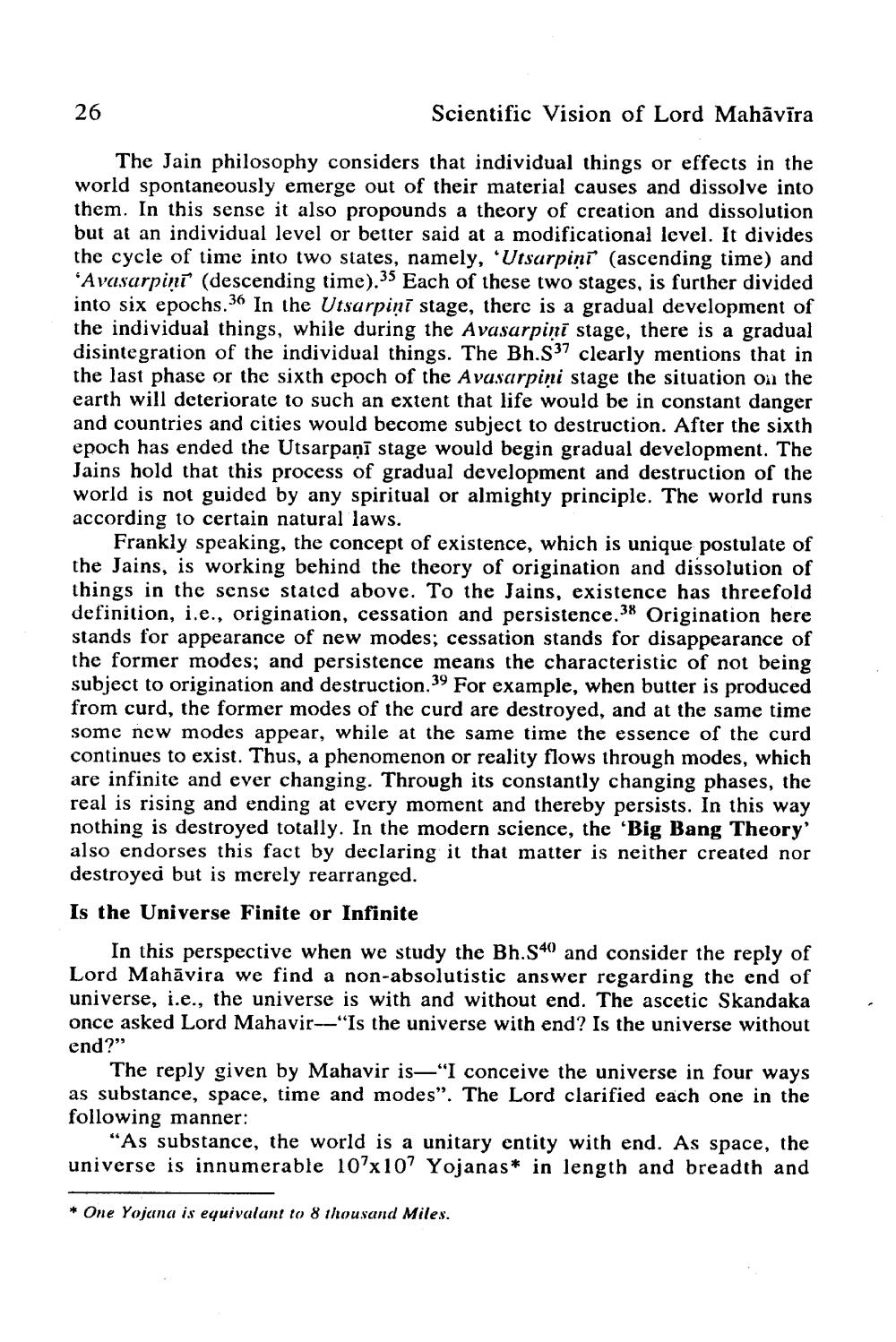________________
26
Scientific Vision of Lord Mahāvīra
The Jain philosophy considers that individual things or effects in the world spontaneously emerge out of their material causes and dissolve into them. In this sense it also propounds a theory of creation and dissolution but at an individual level or better said at a modificational level. It divides the cycle of time into two states, namely, 'Utsarpini (ascending time) and 'Avasarpinī (descending time).35 Each of these two stages, is further divided into six epochs.36 In the Utsarpini stage, there is a gradual development of the individual things, while during the Avasarpini stage, there is a gradual disintegration of the individual things. The Bh.S37 clearly mentions that in the last phase or the sixth epoch of the Avasarpiņi stage the situation on the earth will deteriorate to such an extent that life would be in constant danger and countries and cities would become subject to destruction. After the sixth epoch has ended the Utsarpaņī stage would begin gradual development. The Jains hold that this process of gradual development and destruction of the world is not guided by any spiritual or almighty principle. The world runs according to certain natural laws.
Frankly speaking, the concept of existence, which is unique postulate of the Jains, is working behind the theory of origination and dissolution of things in the sense stated above. To the Jains, existence has threefold definition, i.e., origination, cessation and persistence.38 Origination here stands for appearance of new modes; cessation stands for disappearance of the former modes; and persistence means the characteristic of not being subject to origination and destruction.39 For example, when butter is produced from curd, the former modes of the curd are destroyed, and at the same time some new modes appear, while at the same time the essence of the curd continues to exist. Thus, a phenomenon or reality flows through modes, which are infinite and ever changing. Through its constantly changing phases, the real is rising and ending at every moment and thereby persists. In this way nothing is destroyed totally. In the modern science, the 'Big Bang Theory' also endorses this fact by declaring it that matter is neither created nor destroyed but is merely rearranged.
Is the Universe Finite or Infinite
In this perspective when we study the Bh.940 and consider the reply of Lord Mahāvira we find a non-absolutistic answer regarding the end of universe, i.e., the universe is with and without end. The ascetic Skandaka once asked Lord Mahavir--"Is the universe with end? Is the universe without
end?"
The reply given by Mahavir is—“I conceive the universe in four ways as substance, space, time and modes". The Lord clarified each one in the following manner:
"As substance, the world is a unitary entity with end. As space, the universe is innumerable 107x107 Yojanas* in length and breadth and
* One Yojana is equivalant to 8 thousand Miles.




